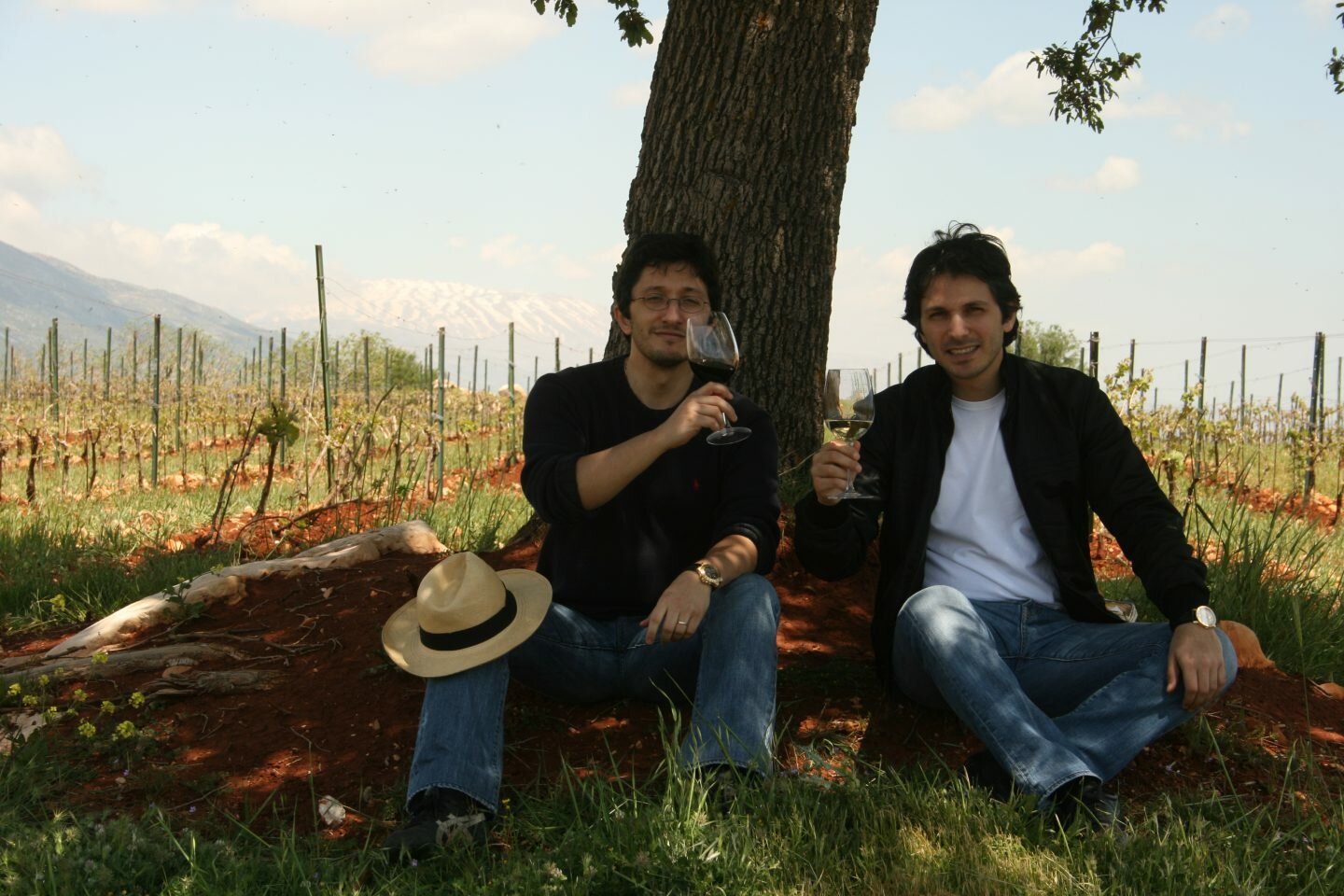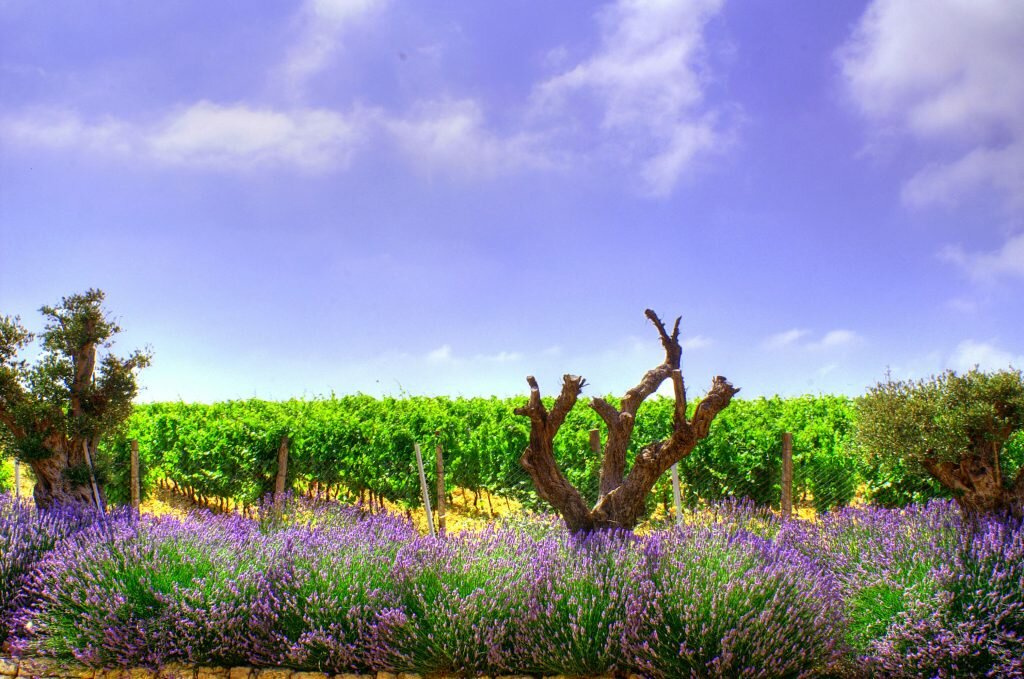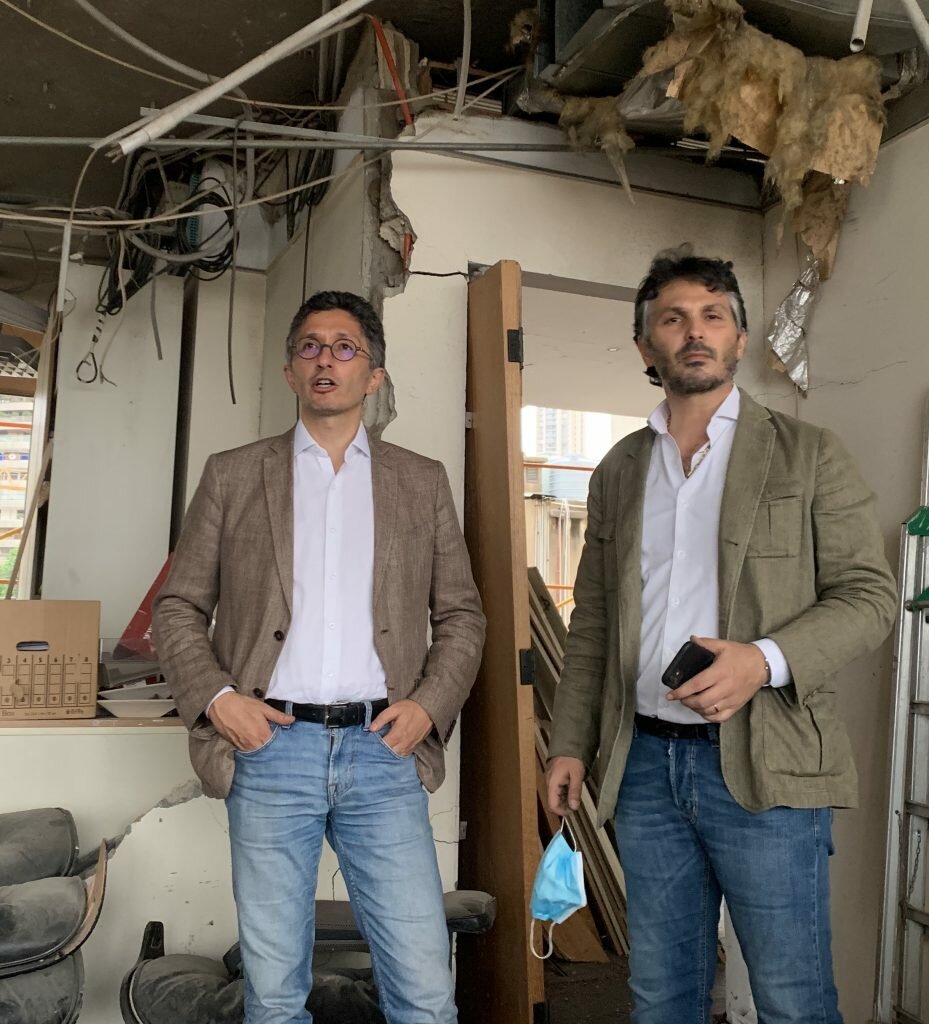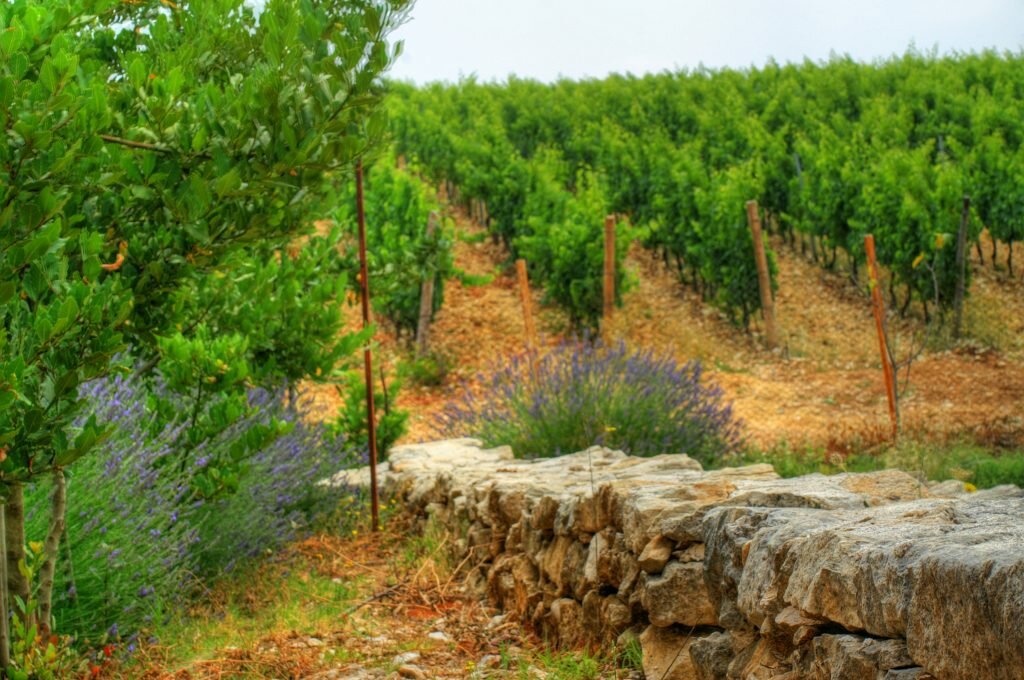Ask any wine producer and he’ll agree that winemaking is a test of tenacity — finding ideal terroir conditions, years of tending to vines before they bear fruit, being a pawn to uncertain weather conditions and then waiting for a wine to mature and age to its optimum drinking window. For the Saadé family, led by patriarch Johnny R., producing the wines of Domaine de Bargylus — Syria’s only commercial winery — comes with more extreme obstacles. Yet, for close to two decades, they have never once considered giving up on this labour of love.
Their Bargylus domaine is located in north-western Syria, on a mountain range overlooking the port city of Latakia.
Starting in 2003, the planting of the vines — at an altitude of 900 metres over 12 hectares of limestone- and flintstone-rich soils — marked a prominent mercantile family’s return to its agricultural roots; just as important, it revived the region’s winemaking traditions dating back to the Canaanites and ancient Greeks and Romans, which had faded with the rise of Islam.
“Everything had to be done from scratch, from training our staff to understand what is wine, what is winemaking and our approach to it,” shares Karim Saadé, who manages Bargylus with brother Sandro.
With the assistance of renowned winemaking consultant Stéphane Derenoncourt, the pair produced their first vintage in 2006, a red blend of syrah, cabernet sauvignon and merlot aged for 14 months in French oak, followed by a chardonnay-sauvignon blanc blend in 2007. Today, the proportion of syrah in the red has increased to 60 percent, as the grape thrives at Bargylus, where the terroir is comparable to France’s Côtes du Rhône.
Five years into their wine production at Domaine de Bargylus, civil war broke out in Syria. The estate suffered mortar shelling, with two bombs landing on their chardonnay vineyard just 10 days before harvest. The winery was partially destroyed. Other close calls include instances of Islamic extremists found near the vineyards. “Should those extremists have gotten to the vineyard, they would have destroyed everything,” says Karim.
Despite the looming threat of potential destruction, the Saadés continue making wine, even if they do it from Lebanon, where they own Château Marsyas in Beqaa Valley. Unable to visit their Syrian estate to inspect their vines or make their wines in person, the brothers employ ingenuity to overcome logistical challenges.
As harvest approaches each year, their Syrian team pick grape samples every two to three days, pack them into refrigerated bags and send them on a four-hour journey across the border for the Saadé brothers to taste and give their order to pick or hold.
“We do this for each plot beginning with the whites and then the reds. As we get closer to the ideal ripeness, the back and forth of the taxi intensifies,” Karim expounds. “We taste the grapes in Beirut, decide the harvesting date for each variety and plot, and then relay these instructions to our Syrian team.”
This remote but hands-on approach to winemaking — communication via phone and email is also consistent during vinification and bottling — allows the Saadés to continue employing families who have chosen to stay on in Syria.
While 2020 has been a challenging year for many the world over, it has been exceptionally so for Domaine de Bargylus and the Saadé brothers. The year began with the economic crisis in both Lebanon and Syria, leading to regional tensions. Covid-19 subsequently forced the world into lockdown, with strict curfews affecting restaurants and businesses.
“Due to the Covid-19 pandemic, our team had to work from home for months, and while we have already accumulated some experience in working remotely, it still made what was an already complicated operation into something much more complicated,” shares Karim.
Yet, nobody could have predicted another spanner in the works. Just as the Saadés were about to harvest their grapes, Beirut was rocked by a devastating port explosion in August, causing over 200 deaths and thousands of injuries. Their administrative office was located just 600m from the epicentre of the blast. Their father Johnny R. was severely injured while Sandro and other staff members also required medical treatment.
“We had to carry our father nine floors down the emergency staircase; it took us 45 minutes just to get him onto the streets where a passing car drove us to the hospital. He stayed there for a bit less than a month, 11 days in intensive care. Those were horrifying moments,” Karim recounts.
While their father was in recovery, the brothers transformed his hospital room into a make-shift office and managed harvesting from there.
“Our grape samples were sent to us at the hospital and we tasted them there. It might sound crazy but we are living in crazy times,” Karim says matter of factly.
“Many people are amazed at how our wines are produced in a state of war. With everything going on that has made our management of the vineyard challenging, what Covid-19 and the blast in Beirut has highlighted is how we have a unique experience and accumulated expertise in managing a vineyard remotely, something we’d like to share with fellow winemakers.”
In spite of it all, calling it quits was never an option. “We have been committed the past couple of decades and we will continue to be. We knew from the beginning that whenever we do something with agriculture, that there are risks. Nobody could have predicted what happened; we might have a choice to pack up and go away, but that is not who we are.”
Despite the mounting challenges, the Saadés have been buying more land and planting new vineyards, though Karim is quick to point out that production will not be scaled up significantly.
“At the end of the day, we are focused on quality and limited quantity.” Grapes from the new vineyards are for a soon-to-be-launched wine. Yet to be named, the mid-tier offering could be released this year, reveals Karim.
While the Saadés fully understand that there’s no promise of certainty in the future, they are optimistic that they will be able to continue to produce exceptional wines through tough circumstances. They are also not beyond dreaming that one day, they will be able to receive visitors at Domaine de Bargylus.
“More than just tasting a bottle of wine, one has to also visit and feel the vineyards to truly understand it. For a totally holistic experience, it will be most gratifying to have people discover Domaine de Bargylus’ vineyards in person,” adds Karim.
This story first appeared in the December 2020 issue of A Magazine.



